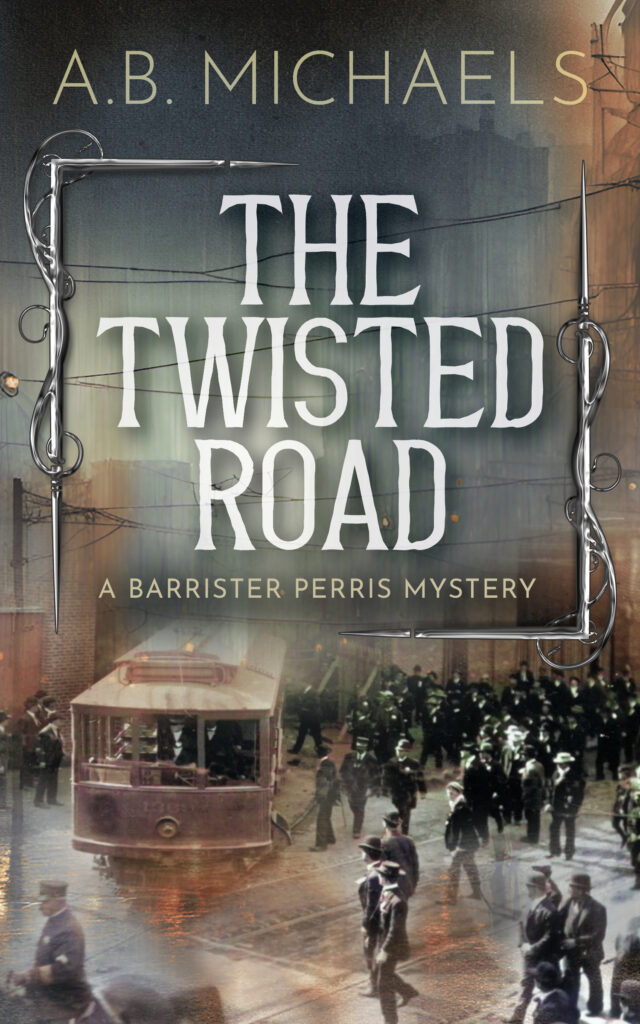My honest review of A.B. Michael’s The Twisted Road

Last month I attended a 4-lessons mystery writing class held by an Italian writer and screenwriter. I’ll probably need some more time to elaborate on the class itself and how it felt to finally read a chapter of We Gotta Get Out to strangers for the very first time, but there is one piece of advice that was repeated quite a few time throughout the course.
The mystery is never all there is: the most interesting stories are the ones that blend it in in the story that sustains and complement the mystery. Gives motivation to the characters, rules the pace and the discovery of clues, stuff like that. As a sort of coincidence, I attended the course at the same time as I was reading A.B. MIchaels’ The Twisted Road, an intriguing murder mystery set in the early 20th Century.
The death of a young woman in a brothel and the murder of a young man during the strike and unrest against the San Francisco cab company may seem unrelated at first. Especially because latter seems to have a very easy solution: the gun that shot down the kid was found on the scene, and it’s easy to find out who the owner of the gun is as he was the only one with that weapon on that day. But is it really that simple?
In The Twisted Road‘s case, the mystery is the “excuse” around which is painted a vivid and intriguing slice of life in the 20th Century America. The social and political unrest in the universities and in the streets play an important role in the murders and their resolution. At the same time, they serve as a cautionary tale about how easy it was, and still is nowadays, to fall into a distorted idea of right and wrong because of blind and stubborn idealism and thus becoming easy to manipulate.
It’s a book that could very easily extended in a series of novels in my opinion, because of how well crafted the characters are and how well they fit with each other. Jonathan Perris is a curious man, with its strive for starting over in San Francisco, his job as an attorney and his “secret life” as an underground fighter. Plus, he’s a knife thrower. I’ve always dreamed about doing that but never had the chance, and maybe that’s for the best.
But the characters that really stole my heart were Dove and his ability of going undercover in pretty much every situation, and Cassandra (of course), a strong woman who prides herself of her own independence. She has a very interesting discussion with Jonathan in the first half of the book, about how she hates that he constantly tries to shine a light on her: she’d like it not to be necessary, as she’s determined to prove her own worth. I could relate very much with it, despite not having to face the same struggles.
But I too am unable to take compliments.
Be First to Comment